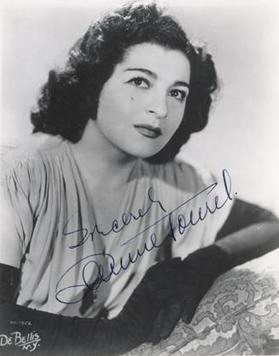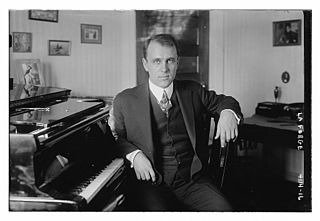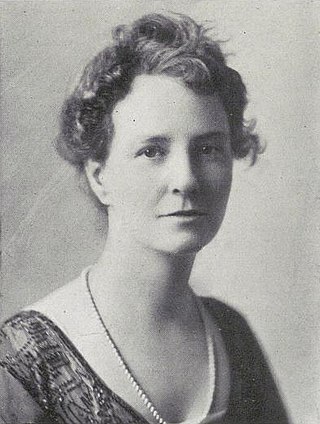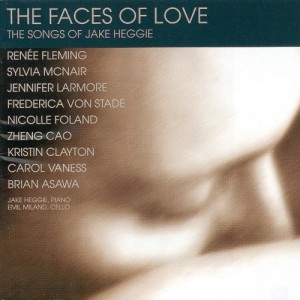
William Howard Schuman was an American composer and arts administrator.

Symphony No. 3 "Kaddish" is a programmatic choral symphony by Leonard Bernstein, published in 1963. It is a dramatic work written for a large orchestra, a full choir, a boys' choir, a soprano soloist and a narrator. "Kaddish" refers to the Jewish prayer that is chanted at every synagogue service for the dead but never mentions "death."
December Songs is a song cycle for singer and pianist by musical theatre composer-lyricist Maury Yeston. The work is a "retelling" of Franz Schubert's Winterreise,, with a cabaret sensibility. The songs in both December Songs and Winterreise are linked as a sequence of reflections by the singer taking a lonely walk in winter, thinking back on his or her lost love.

Leonard Bernstein's Symphony No. 1 Jeremiah was composed in 1942. Jeremiah is a programmatic work, following the Biblical story of the prophet Jeremiah. The third movement uses texts from the Book of Lamentations in the Hebrew Bible, sung by a mezzo-soprano. The work won the New York Music Critics' Circle Award for the best American work of 1944.

Blanche Thebom was an American operatic mezzo-soprano, voice teacher, and opera director. She was part of the first wave of American opera singers that had highly successful international careers. In her own country she had a long association with the Metropolitan Opera in New York City which lasted 22 years. Opera News stated, "An ambitious beauty with a velvety, even-grained dramatic mezzo, Thebom was a natural for opera: she commanded the stage with the elegantly disciplined hauteur of an old-school diva, relishing the opportunity to play femmes du monde such as Marina in Boris Godunov, Herodias and Dalila."

Harolyn Blackwell is an American lyric coloratura soprano who has performed in many of the world's finest opera houses, concert halls, and theaters in operas, oratorios, recitals, and Broadway musicals. Initially known for her work within musical theater during the early 1980s, Blackwell moved into the field of opera and by 1987 had established herself as an artist within the soubrette repertoire in many major opera houses both in the United States and in Europe. Feeling that she was being "type cast" into one particular kind of role, Blackwell strove to establish herself within the lyric coloratura repertoire beginning in the mid-1990s. With the aid of such companies as Seattle Opera, Blackwell successfully made this move and is now an interpreter of such roles as Lucia in Donizetti's Lucia di Lammermoor and Olympia in Offenbach's Les contes d'Hoffman. She has also periodically returned to musical theater performances throughout her career in staged productions, concert work, and recitals. Blackwell is known for her interpretations and recordings of the works of Leonard Bernstein.

Jennie Tourel was an American operatic mezzo-soprano, known for her work in both opera and recital performances.

Shirlee Emmons was an American classical soprano, voice teacher, and author on vocal pedagogy. She began her career in the early 1940s as a concert soprano, eventually becoming one of the original singers in the Robert Shaw Chorale in 1948. She branched out into opera in the 1950s; performing mainly with regional companies in the United States. She achieved several honours as a performer, including winning the Marian Anderson Award in 1953 and an Obie Award in 1956.
Martha Lipton was an American operatic mezzo-soprano and music educator who is best known for her career performing at the Metropolitan Opera from 1944-1961. A native of New York City, she began her training as a vocalist with her mother who had a brief career as a concert soprano under the name Estelle Laiken. She later studied both privately and at the School of Musicianship for Singers, Inc and the Juilliard School. She made her professional concert debut while still a student in 1933 at Carnegie Hall, performing in a concert of light opera excerpts with the New York Light Opera Guild. In 1936 she began working as a church vocalist at both Riverside Church and Temple Emanu-El of New York.

Frank La Forge was an American pianist, vocal coach, teacher, composer and arranger of art songs.
Charles Naginski was an American composer of art songs and other musical works.

Nelle Richmond Eberhart was an American librettist, poet, and teacher. She is known for her long collaboration with composer Charles Wakefield Cadman. She wrote 200 songs and the librettos for five operas for which he composed the music.
Howard Leake Boatwright Jr. was an American composer, violinist and musicologist.
Honey and Rue is a song cycle composed by Oscar and Grammy award winner André Previn and premiered by Kathleen Battle, with words from poems by Nobel laureate Toni Morrison. It is scored for a solo soprano and small orchestra and is influenced by the rhythms of jazz, blues and American spirituals. The New York Times termed the composition "a model of understated luxury, rich and plastic without the need of ornament".

The Faces of Love is a 78-minute studio album of contemporary classical songs composed by Jake Heggie, performed by Brian Asawa, Zheng Cao, Kristin Clayton, Renée Fleming, Nicolle Foland, Jennifer Larmore, Sylvia McNair, Frederica von Stade and Carol Vaness, with piano accompaniment by Heggie and with two contributions by cellist Emil Miland. It was released in 1999.

Arias and Barcarolles is a 78-minute contemporary classical studio album of music by Leonard Bernstein, performed by Thomas Hampson, Frederica von Stade, Simon Carrington, Neil Percy and the London Symphony Orchestra under the direction of Michael Tilson Thomas. In addition to the song cycle which gives it its name, the album includes the Suite from Bernstein's opera A Quiet Place and the Symphonic Dances from his musical West Side Story. It was released in 1996.
Sure on this shining night, op.13 no.3 is an art song by composer Samuel Barber from his 1938 song cycle Four Songs. The work's text is taken from James Agee's poem "Descriptions of Elysium" which was published in his 1934 poetry collection Permit Me Voyage by the Yale Series of Younger Poets. One of Barber's most frequently performed works, the work displays Barber's Neo-Romantic lyricism with its classically oriented formal structure and carefully crafted interplay between solo voice and piano that emphasizes canonic imitation. In 1938 Barber created an orchestral arrangement for the song. Barber later reworked the art song into an SATB choral arrangement in 1961. The song has been recorded by sopranos Roberta Alexander, Elly Ameling, Martina Arroyo, Barbara Bonney, Greta Bradman, Barbara Hendricks, and Cheryl Studer; mezzo-sopranos Sasha Cooke and Marilyn Horne; baritones Gerald Finley and Thomas Hampson; tenors Stuart Skelton and Robert White; and choral ensembles Conspirare, The Esoterics, the Choir of Ormond College, and the Cambridge University Chamber Choir.

La Bonne Cuisine: Four Recipes for Voice and Piano is a 1947 song cycle of recipes by Leonard Bernstein.
Mildred Lund Tyson was an American choral director, composer, organist, and soprano.












